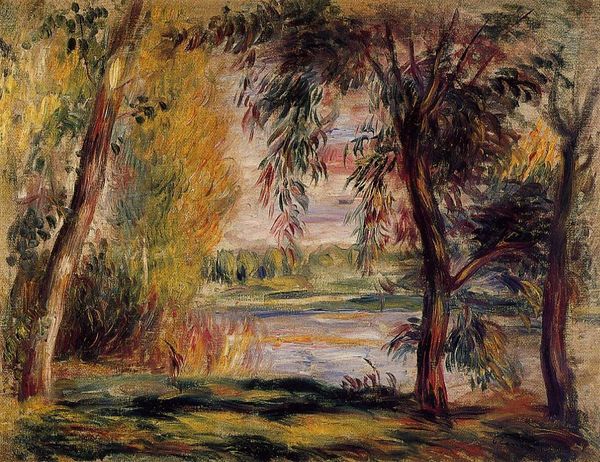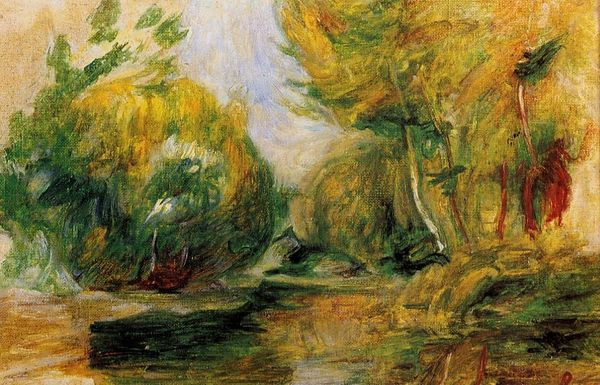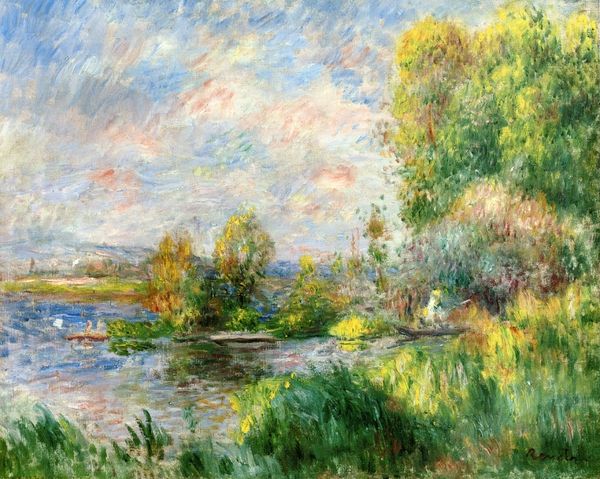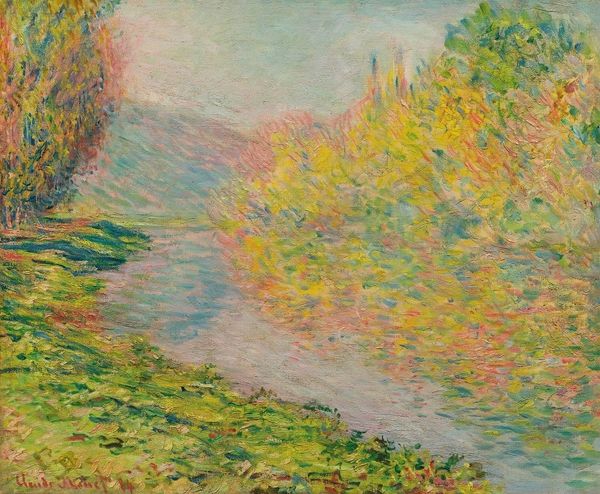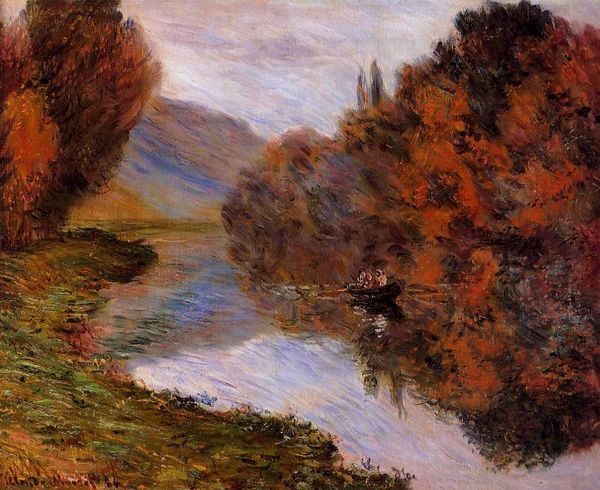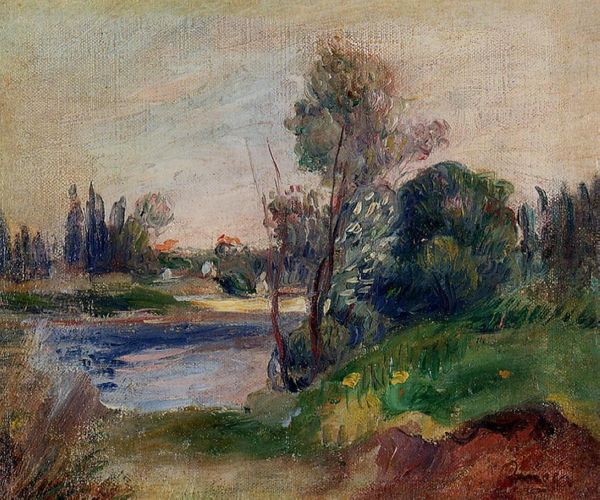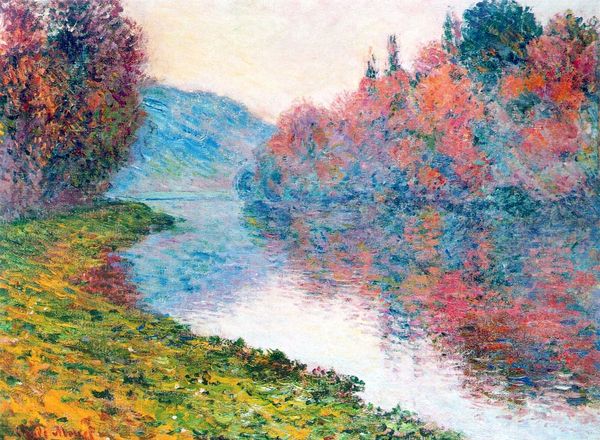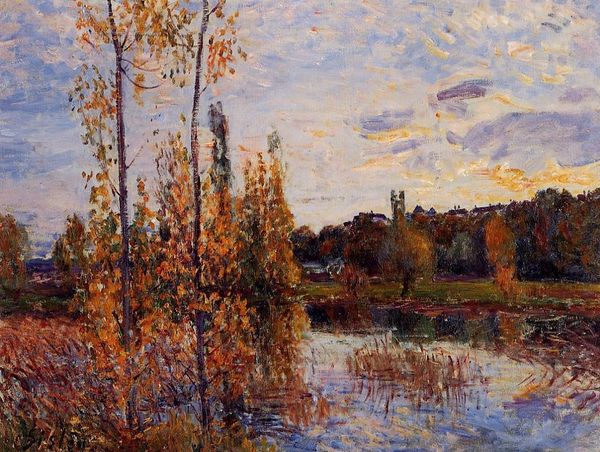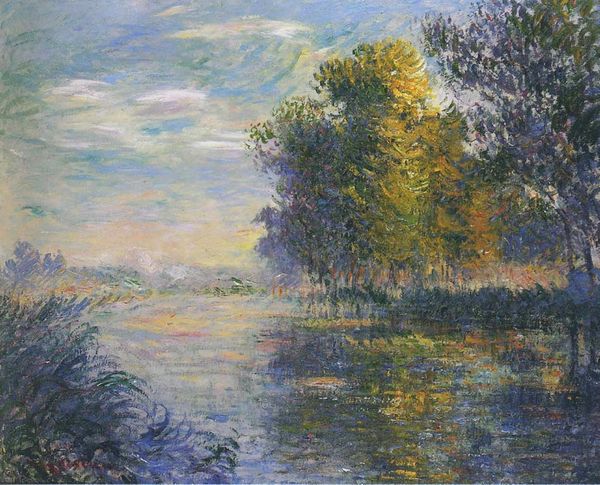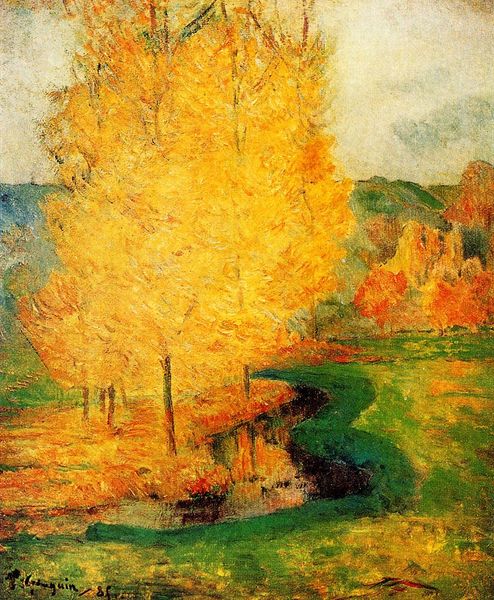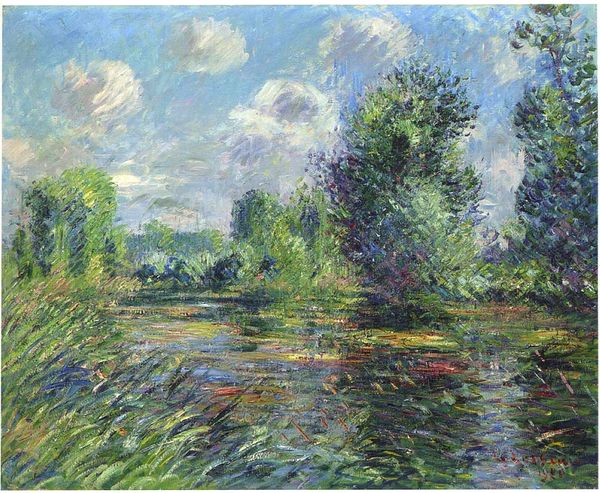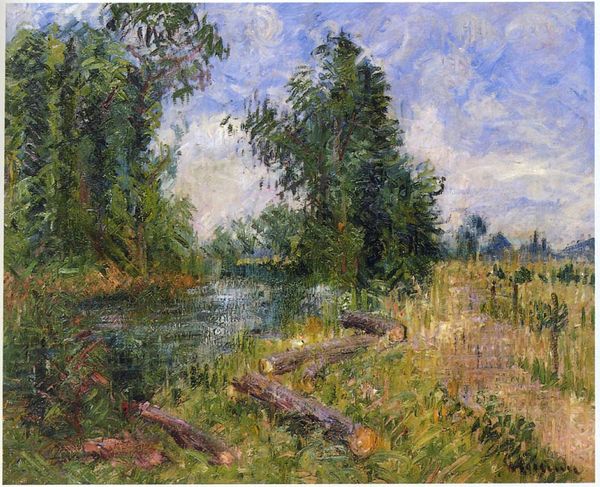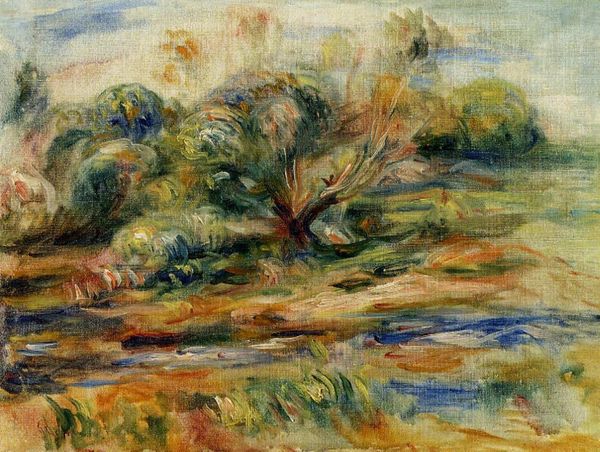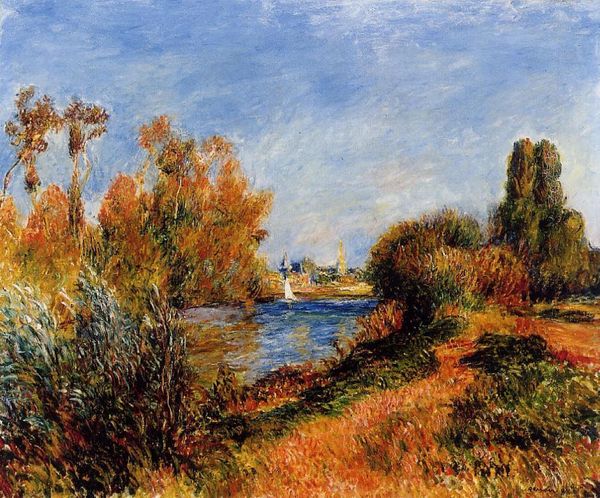
Dimensions: 46 x 56 cm
Copyright: Public domain
Editor: This is "Banks of a River," an oil painting by Pierre-Auguste Renoir, from 1896. The way the colors blend gives the scene a dreamlike, almost hazy quality. What do you see in this piece, in terms of its place in art history or society at the time? Curator: This painting really encapsulates Impressionism's move towards subjective experience. We see Renoir capturing not just the 'what' of the landscape but the 'how' it felt to be there. Consider how radically this departed from academic landscape painting which prized idealized, highly finished representations. Editor: Right, it's more about a feeling. Was there something about this kind of subject matter – everyday landscapes – that resonated with people at the time? Curator: Absolutely. This type of accessible subject matter moved painting away from representing only the aristocratic or historical scenes of importance, which helped establish art’s democratic function. Artists chose leisure scenes that a burgeoning middle class could understand and that echoed their lives. How do you see that reflecting societal changes? Editor: I guess it made art more relevant, less exclusive, right? Instead of gods and heroes, it was everyday life that got celebrated. Curator: Exactly. And Renoir’s technique, the broken brushstrokes and focus on light, was itself radical. Museums at the time struggled with showing such artworks as this new, informal technique challenged long held assumptions about what ‘finished’ artwork should look like. It was very much pushing against institutional boundaries. Editor: I never really thought about landscapes being a radical choice. This makes me look at Renoir differently. Curator: Understanding art as part of its social and cultural landscape makes everything more vibrant, doesn't it? I've always been drawn to how the history and art work together to tell larger truths about how we've changed.
Comments
No comments
Be the first to comment and join the conversation on the ultimate creative platform.
